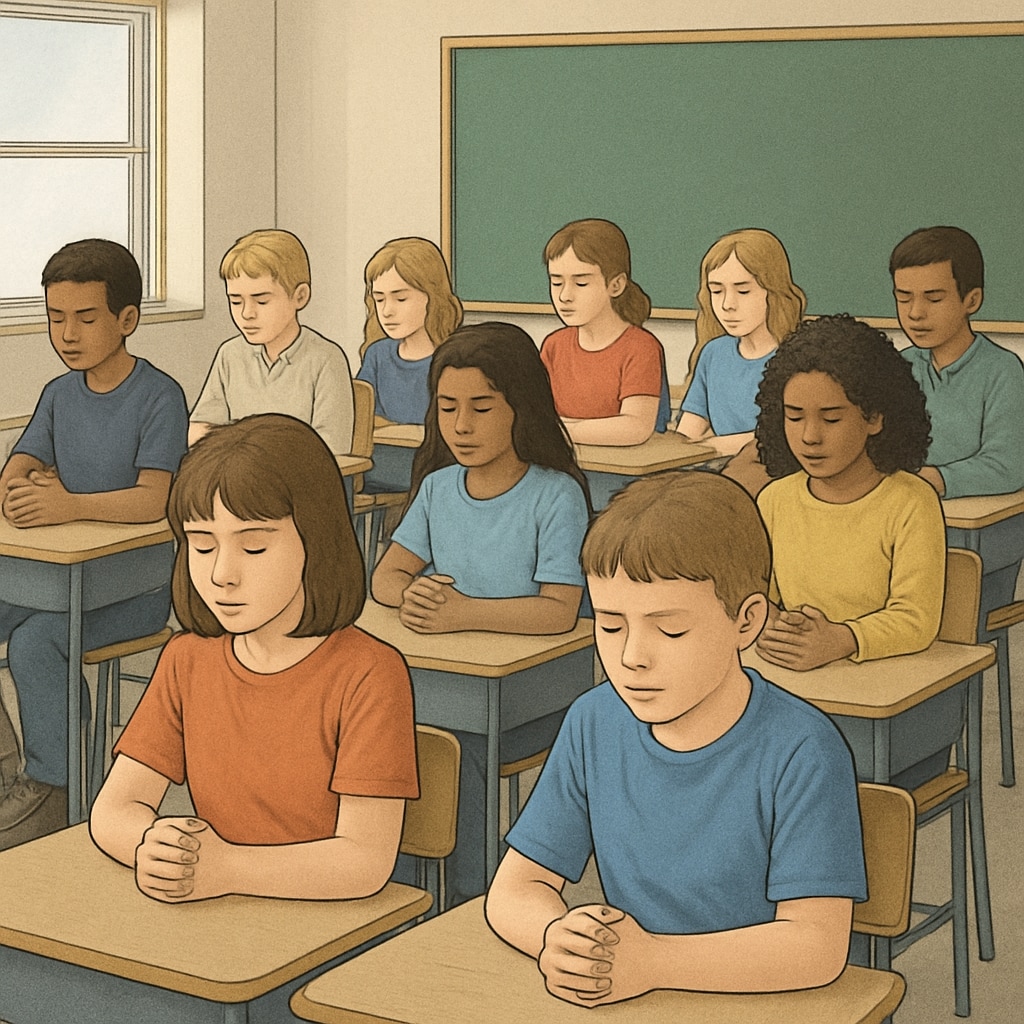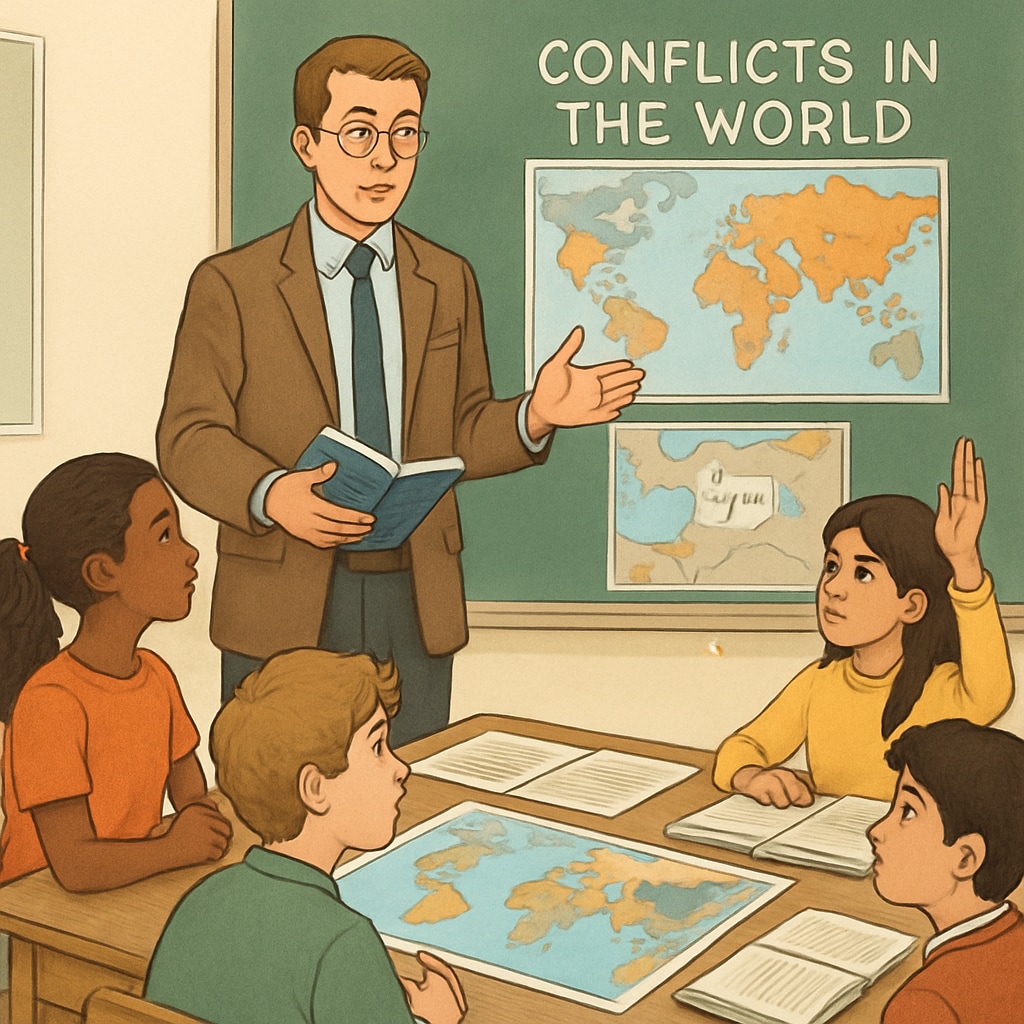The decision by some K-12 schools to generalize a Gaza mourning event into a broader observance for “global war victims” has ignited heated debates. Critics argue that this approach dilutes the gravity of specific humanitarian crises, such as the ongoing situation in Gaza, while proponents defend it as an attempt to foster inclusivity. This article examines the ethical and educational dilemmas posed by this “generalized mourning” practice, highlighting the tension between political correctness and the responsibility to acknowledge specific human suffering.
The Ethical Implications of Generalizing Mourning
At the heart of this controversy lies a fundamental question: Is it ethical to broaden a moment of silence initially intended to honor victims of a specific crisis? In the case of Gaza, the conflict has drawn international attention due to its profound humanitarian impact, including civilian casualties, displacement, and infrastructure destruction. By expanding the scope of the mourning activity to include all war victims globally, schools risk overshadowing the unique and urgent nature of the Gaza crisis.
This generalization can unintentionally send a message that no crisis is more urgent or significant than another, potentially undermining the call to action that specific tragedies often inspire. Furthermore, it raises concerns about educational institutions’ role in fostering critical awareness. Should schools prioritize neutrality to avoid controversy, or should they take a stand on pressing global issues?

Balancing Inclusivity and Specificity in Education
Proponents of the generalized approach argue that it promotes inclusivity by acknowledging the universality of human suffering in conflicts. This perspective aligns with the desire to avoid alienating students who may have personal connections to other global crises. However, this inclusivity comes at a cost. It risks creating a “one-size-fits-all” narrative that diminishes the educational value of exploring the unique contexts and causes of different conflicts.
For example, teaching about the Gaza conflict provides an opportunity to delve into its historical, political, and social complexities. Broadening the mourning activity to encompass all war victims may inadvertently discourage such in-depth exploration. Instead of fostering understanding and empathy for specific situations, schools might settle for a surface-level acknowledgment of global suffering.
As educational institutions, schools have a responsibility to equip students with the tools to critically analyze and engage with the world around them. This includes addressing sensitive topics with courage and clarity, even when they are politically or socially contentious.

Lessons from the Controversy
The controversy over generalizing Gaza mourning offers several lessons for educators and policymakers:
- Context Matters: Specific crises require tailored responses to ensure their unique characteristics are understood and respected.
- Encourage Critical Thinking: Schools should use moments of silence and other activities as starting points for deeper discussions on global issues.
- Foster Empathy Without Dilution: While inclusivity is important, it should not come at the expense of recognizing and addressing specific tragedies.
- Engage All Stakeholders: Decisions about sensitive topics should involve input from students, parents, and educators to reflect diverse perspectives.
Ultimately, educational institutions must navigate a delicate balance. They should strive to honor the victims of specific crises like Gaza while also fostering a broader understanding of global suffering. This requires thoughtful decision-making and a commitment to educational ethics.
Moving Forward: Courage and Responsibility in Education
As schools grapple with how to address sensitive topics, they must recognize the weight of their decisions. Generalizing mourning activities to encompass all war victims may seem like a safe, politically correct choice, but it risks diminishing the impact of specific humanitarian crises. Instead, educators should embrace their role as facilitators of critical thought and empathy.
This means being willing to confront difficult topics head-on, even when they are controversial. By doing so, schools can empower students to engage with the world in a meaningful and informed way. The Gaza mourning controversy serves as a reminder of the importance of courage and responsibility in education—a lesson that extends far beyond the classroom.
Readability guidance: Short paragraphs and clear headings improve readability. Lists summarize key points effectively. Attention to ethical considerations and nuanced analysis ensures a comprehensive discussion of the topic.


